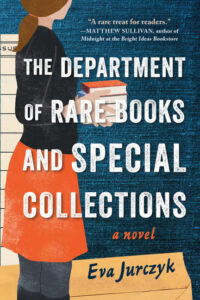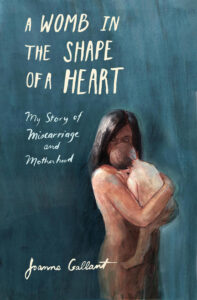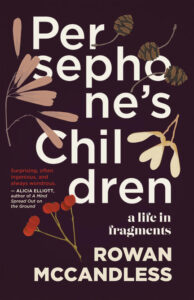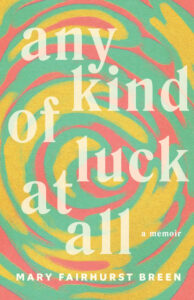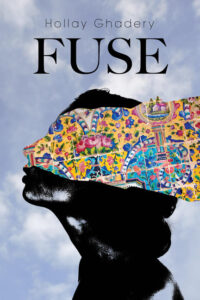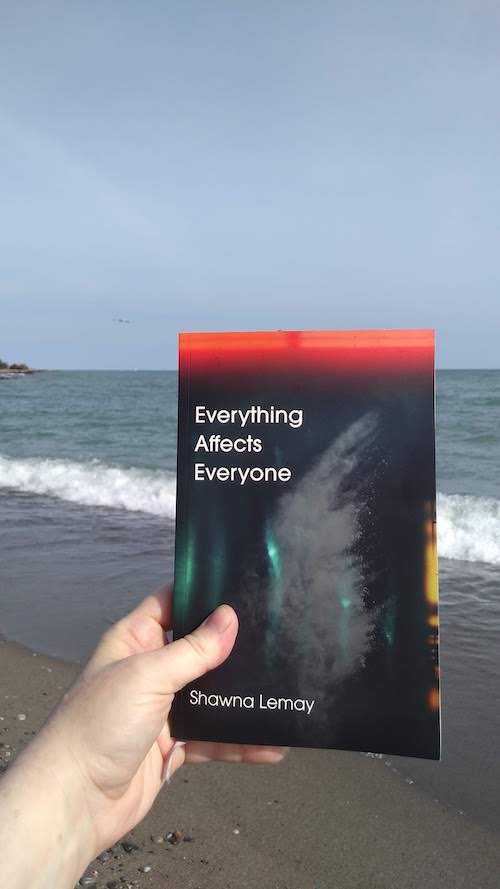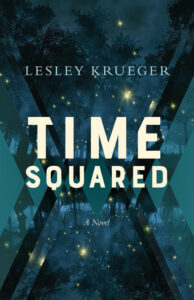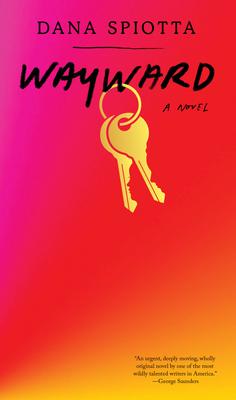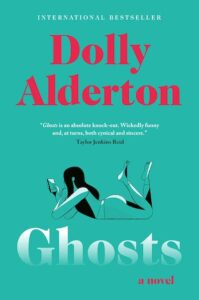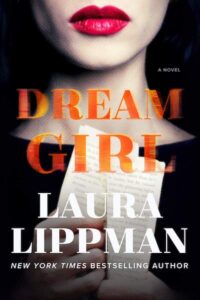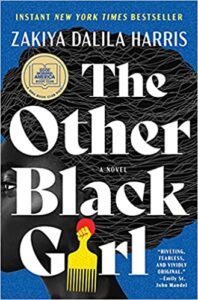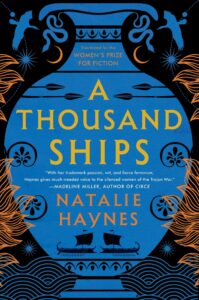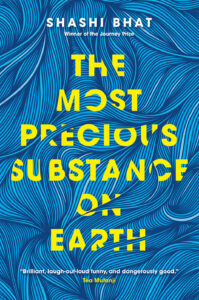January 7, 2022
The Department of Rare Books and Special Collections, by Eva Jurczyk
Eva Jurczyk’s debut novel The Department of Rare Book and Special Collection ticks all my boxes—bookish mystery, rare book thieves, library setting, weirdo librarian characters, Toronto setting, and intriguingly feminist. Curiously, Jurczyk arrived at the idea for her book and her protagonist Liesl after she became a parent and began pondering the invisibility of women, specifically older women…and then she went and wrote a novel about a woman who’s about sixty, which isn’t the usual trajectory for a new mom/novelist, is all I’m saying.
And so Liesl was not who I was expecting, especially based on the book’s otherwise quite compelling cover which might mislead a reader (and it certainly did me) into thinking I wasn’t picking up a book about a character with decades of backstory behind her, a story about a woman in a long marriage with a grown daughter, a woman on the verge of retirement with plans of finally writing that book about gardening she’s been thinking about all these years.
But then plans get called off when the Director of the Rare Books Library (which may or may not be influenced by the Thomas Fisher…) where Liesl works is incapacitated by a stroke, and she has to step into acting in his role. Which her colleagues are put out by, never mind the university president with his ubiquitious bike helmet and obsequious regard for major donors. All of which would be annoying enough, but then Liesl begins to realize that things at the library are not what they seem, that any number of her colleagues could be keeping secrets, and then one of those colleagues goes missing, but no one wants Liesl to involve the police.
The bookish mystery here is fun and interesting, though it’s Liesl’s own story that’s most remarkable and compelling about this book, and I admire the deft way in which Jurczyk sets her character just past midlife (don’t tell any baby boomers I wrote that…) and yet manages to develop a rich and textured backstory without awkward exposition. Liesl’s relationship with her husband John is my very favourite part of this book, such a deep and sensitive portrayal of a long and complicated relationship. John has struggled with depression over their years together, the reader is able to understand, and I kept waiting for this to become a plot point (and so does Leisl, actually, ever aware of how the bottom can fall out) but (SPOILER ALERT) it really doesn’t.
I don’t know that I’ve ever read a novel before in which loving somebody with mental illness is incidental to the story, but also it informs our understanding of Liesl, and her experiences with John in the past will inform the challenges she encounters at work where she feels like she’s been stymied at every turn.
The Department of Rare Books and Special Collections was my first book of 2022, and it started off my literary year on such a high note. Even better? On January 21 at 1pm, I’ll be interviewing Jurczyk for her virtual event with the Toronto Public Library. You can register here if you’d like to attend. I’m really looking forward to it.
January 6, 2022
What I read on my holidays…
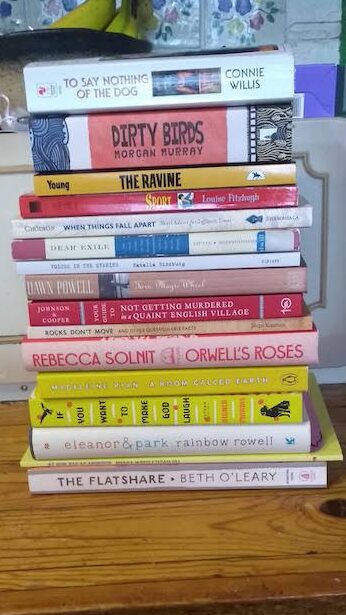
The end-of-year holidays is my very favourite reading period, when I shun new releases and top of the bestseller charts, and devote my time to smelly paperbacks I found in Little Free Libraries, novels I bought at used bookstores years ago with the best intentions but still haven’t read yet, and other books that have been sitting on my to-be-read shelf for far too long. It’s also the holiday where I’m not travelling, where my days are mostly full of hours to fill with reading (staying in bed for ages in the morning, reading all afternoon…) especially since it’s also the time of year where I mostly abandon the internet.
I love reading in the holidays because I get to finally make a dent in my epic to-be-read pile, to feel less overwhelmed by all the books before me and to get down to brass tacks. It was WONDERFUL.
Dear Exile, by Hilary Liftin and Kate Montgomery
I first read this book almost 20 years ago after stealing it from the youth hostel where I was living at the time, far across an ocean away from my own dear friends, including one that was named Kate. And so this story of two friends post-college on separate continents was very resonant, I recall. And then I mostly forgot about it…until I realized that my next novel, about two best friends, had definitely been informed by Dear Exile. And so I purchased a secondhand copy online and read it all again, and was bowled over by how extraordinarily good Liftin and Montgomery’s writing is. I don’t think anyone would ever publish that I sent my friends in a book. Also offers an extraordinary glimpse of late 90s dot.com work culture, whose tail end I had a sense of a few years later. A more innocent time. THE CYBERSEX!
*
When Things Fall Apart, by Pema Chodran
As I’ve written already, I rolled into the holidays in a mental health crisis, and so this title spoke to me when I encountered it on the shelves of the best store in the city. Definitely the book I needed in the moment—this book has showed me a glimpse of a world in which I don’t always need to be freaking out about what’s around the corner and instead just focussing on right now. Even if right now is hard.
*
Rocks Don’t Move, by Shari Kasman
Kasman and I have been sharing a swim lane on Mondays for a few months now (and we will again!), and after I read about her new book in The Toronto Star, I knew I had to have a copy. It was a remarkable book to read after When Things Fall Apart, actually, which its emphasis on subjectivity. What is a fact? What’s a feeling? An opinion? And what is community? This book grapples with these questions rather marvellously.
*
Sport, by Louise Fitzhugh
I either found this book in a Little Free Library or picked it up at a used bookstore this summer to add to my Louise Fitzhugh collection—and when it still felt like things were falling apart for me, to sit in my bathtub one Sunday night reading this while eating leftover fried chicken just felt like the greatest thing in the world.
*
Dirty Birds, by Morgan Murray
I met Murray in November when we both attended the Wordstock Sudbury Book Festival. Our hotel was as far away from the airport as was physically possible that weekend, and so we had lots of time to get to know each other in the airport van. Morgan Murray is notable for being a man who read my novel who is neither my relative nor a friend (though I might consider him one now—he’s wonderful). His debut novel was also nominated for the Leacock Prize and was such a delight to finally encounter. It has footnotes, AND cartoons. I really enjoyed it.
*
Voices in the Evenings, by Natalia Ginzburg
I’ve read a Natalia Ginzburg book over the past two winter holidays, and so was excited to read this one, which came out in English just this year. Truthfully, I loved it less than I’ve loved her other novels, but I loved them a lot, so that’s not saying much. She’s wonderful.
*
The Flatshare, by Beth O’Leary
I found this book in a Little Free Library this fall and knew I’d be looking for something light and cheerful. Like the Mhairi McFarlane book I read this summer, it was not as light as you think, but that’s probably why I liked it. Great character, some emotional complexity. Initially I was a bit suspicious that a novel about two flatmates who never meet would work…but it did!
*
The Ravine, by Phyllis Brett Young
Phyllis Brett Young’s The Torontonians is a beloved novel for me, and The Ravine is a noir novel she published under a pseudonym a few years later, reissued by Vehicule Press’s Ricochet Books with an introduction by Amy Lavender Harris, who was the whole reason I discovered The Torontonians in the first place. I really liked it—sinister, over the top, but with some interesting complexity and bit of a Shirley Jackson/Peyton Place England edge.
*
A Room Called Earth, by Madeleine Ryan
I spent a lot of early 2021 ordering books online from indie bookstores and this one was a title I threw into the order to make it worth my while. I read it on Christmas, which turned out to be perfect, because it was set at Christmas, albeit in Australia. Madeleine Ryan, who is autistic, writes about a character who herself is neurodiverse, though this is not made explicit in the text itself. Instead, the reader gets to see the world through the character’s unique perspective, which is extraordinary.
*
Your Guide to Not Getting Murdered in a Quaint English Village, by Maureen Johnson
I gave this book to my husband for Christmas, as we’ve spent a lot of time watching Midsomer Murders together over the years, and it proved a lot of fun. Our daughter also read it and related because she’s a fan of Johnson’s Truly Devious series.
*
Orwell’s Roses, by Rebecca Solnit
I received Orwell’s Roses as a Christmas present, the latest from Rebecca Solnit, who’s become well known for her pamphletty essay collections on politics and feminism, but whose larger literary projects (especially informed by her background as a geographer) were how I fell in love with her work in the first place. In this delightful meandering book, she reflects on a garden of roses Orwell planted at his home in Wallingford, Oxfordshire, and how this and other factors complicate common perceptions of the writer. Orwell continues to be fascinating for his critique of the USSR and authoritarianism all the while not becoming a right-wing nutjob in response, which was the usual trajectory.
*
Turn, Magic Wheel, by Dawn Powell
I bought this book at a used bookstore years ago, and have been failing to pick it up for years. Dawn Powell published this in the 1930s and her obscurity has been lamented by such forces as Fran Lebowitz and Rory Gilmour. It is exquisite, sharp and clever, full of edges and surprises.
*
Eleanor and Park, by Rainbow Rowell
Rowell’s Attachments was one of my favourite books of last year, and everyone told me that I had to read Eleanor and Park, which I think we found at Value Village. And I really liked it.
*
If You Want to Make God Laugh, by Bianca Marais
Also so happy to finally read this novel by Bianca Marais, whose podcast has been a big part of my year.
*
My Mom Had an Abortion, by Beezus Murphy
And then this book arrived in the mail, which I’d supported through its Kickstarter—it was so well done, telling such an ordinary story that doesn’t get addressed enough—how many of us only exist at all because of an abortion. It’s a graphic novel geared to teens and manages to address what’s simple and complicated about abortion all at once.
*
To Say Nothing of the Dog, by Connie Willis
And omg, this book, this book!! Be still, by Dorothy L Sayers/Barbara Pym/Jumble Sale loving heart, all wrapped up in a bonkers time travel plot. This novel was a gift and such a perfect novel to be reading as the new year began. (Grateful to Lindsay for the recommendation!)
January 4, 2022
More Best Books

Maybe one of my New Year’s resolutions is to read more off the beaten track, just the way I did on my holiday break (more on that coming this week, you know you want it…). The above books were some of my favourite books I read last year that weren’t published last year. Each one made my reading year rich and interesting.
December 1, 2021
4 Great Memoirs I Rushed To FINALLY Read Before Year’s End
A Womb in the Shape of a Heart, by Joanne Gallant
Joanne Gallant’s A Womb in the Shape of a Heart is a story of motherhood and loss, a motherhood story that didn’t always promise a happy ending either, though Gallant had no inkling of this when she and her husband set out to have a baby. A pediatric nurse, a person who’d always seem in control of her own destiny, the grief and powerlessness of miscarriage and infertility would rock Gallant to her core.
A Womb in the Shape of a Heart is a beautifully woven story of loss and love, Gallant eventually giving birth to her son, but the pregnancy was fraught with anxiety, and the early days of his life were spent in the newborn the intensive care unit.
And it’s just a story so gorgeously crafted, honest and brave in so many ways, a story that encapsulates the experience of so many families but is still considered taboo or shameful. Joanne Gallant shattering that stigma with beautiful prose and such compelling storytelling that will assure so many people that they aren’t alone.
Persephone’s Children, by Rowan McCandless
All right, this book is excellent. Which is remarkable because a collection of “fragments,” you’d think, would be inherently raw and unpolished. Especially when the fragments themselves are so curious in form: the essay as crossword puzzle, as drama script, as quiz, as diagnosis.
Pretty cool, right? A fun gimmick. But challenging to execute…
In her debut collection, however, Rowan McCandless gets it right, each of these pieces so meticulously crafted to tell a story of a difficult childhood, of growing up Black and biracial, of surviving and escaping an abusive marriage. She writes about motherhood, mental health, and living with trauma.
This is a book that’s going to surprise and delight you.
Any Luck At All, by Mary Fairhurst Breen
Any Kind of Luck at All, by Mary Fairhurst Breen, is from one of my favourite literary genres: memoirs by women who’ve seen some shit. She writes about her suburban childhood, her father’s unspeakable mental illness, her burgeoning activist experiences, marrying young and perhaps unwisely, about parenting as her husband’s addictions overtook him, of becoming a single mother, a lesbian, of a career in nonprofits subject to the whims of government funding, of the struggles of finding work as a woman who’s over 50, and of supporting her daughter through her own mental illness and losing her to fentanyl poisoning in March 2020. Breen originally started writing down her stories for her daughters to read, and as a result they are told with such warmth, and are candid, breezy, funny, and wise.
Fuse, by Hollay Ghadery
I enjoyed Hollay Ghadery’s uncomfortable-making, complicated, richly textured collection of essays, a memoir of daughterhood and motherhood, mental illness, eating disorders and biracial identity SO MUCH. Most things are not just one thing or another, but instead both, and neither, and everything at once. In Fuse, Ghadery unapologetically demands the right to have it both ways, to be a messy, conflicted, raging, loving, hungry and full to bursting human
November 19, 2021
Angels, Hope, and High Stakes: A Conversation with Shawna Lemay
Shawna Lemay’s new book is the novel Everything Affects Everyone. You should be reading her blog Transactions With Beauty.
First thing: I am not interested in angels. Not at all, and so I’d wondered about Shawna Lemay’s new novel, whether it would have the power to sustain my non-interest in angels for the length of a book, but if you’ve ever read anything by Shawna Lemay (her blog, her fiction, her poetry, her essays) you’ll know that her work is never just about one thing anyway, instead a jumping off point for daydreams and reveries and musings on art and other golden things
Second thing: Everything Affects Everyone is a novel about questions, and boy do I have some, such as “How did your obsession with Bruce Springsteen influence this novel?” and “How you decide what kind of container your ideas will fit into, especially since there is such wide overlap and connections between everything you write?” and “What does it mean when you’re writing about questions and answers and dialogue, and yet YOU (Shawna Lemay) are imagining all of it, the illusion of a back and forth,” which kind of makes me start thinking of angels then, and reminds me of one of my favourite lines from the book about how maybe angels aren’t real, but the doubt is real, the wondering is real.
Everything Affects Everyone is wonderful and strange, rich and engaging, provocative and comforting, and filled with mystery and beauty. And what impressed me most about this book is how Lemay’s entire oeuvre is an essential context for appreciating this book properly, the way it fits into and extends her ideas and philosophy, which is utterly original, and inviting, which you can’t say about most things one might term a “philosophy.”
I am obsessed with Shawna Lemay’s obsessions, and the generosity with which she shares them, and the way that she can make me become vicariously obsessed with anything.
Even angels.
*****
Kerry: Can I start off with: How did your obsession with Bruce Springsteen influence this novel?
Shawna: I don’t think there could be a more perfect first question. I wanted to write a book where the stakes were high which I used to understand as maybe telling a story about the brutal state of the world, a story that was about escaping trauma or violence or incredibly difficult circumstances. I admire these kinds of high stakes narratives. I find them necessary. But there are other approaches.
It felt almost radical to insist on a narrative that looks at beauty and mystery and tries to move toward hope. Springsteen puts everything into his songs, and then also creates a narrative about his life, and lets that live around his work, too. Everything he does is part of the Springsteen story, I think. So, I like that. The stakes are high for Springsteen—he doesn’t shy away from the tough subjects, but he comes to them through music that is pure joy.
Springsteen says, “…you can change someone’s life in three minutes with the right song. I still believe that to this day. You can bend the course of their development, what they think is important, of how vital and alive they feel.” There are the things that you hope to do when you write a novel, but it will be received however it will be received. I would love to think that this book could go some way toward making the reader feel alive, feel invigorated.
It felt almost radical to insist on a narrative that looks at beauty and mystery and tries to move toward hope.
And then in an Esquire interview he says, “You’re trying to take all this misunderstanding and loathing, and you’re trying to turn it into love—which is the wonderful thing that happens when you’re trying to make music out of the rough, hard, bad things. You’re trying to turn it into love.” So while it may or may not come through in the novel, I asked myself, what if you just pour everything you have into this container called a novel, and just let it all turn into love somehow? What would that look like? Instead of the cockroach in Kafka’s The Metamorphoses, what if we had an angel? What if the act of imagining ourselves as an angel was just another way of imagining how to be human? What if we could be the angel who could guard each others’ “dreams and visions?”
Kerry: Oh wow, I love this, I asked the question because I honestly had no idea what your answer would be (and these are usually the most worthwhile questions to be asking in the first place), if it might be that there’s no connection at all, because it wasn’t like I read Everything Affects Everyone, and was thinking about Bruce Springsteen. But I know that your connection to him had been somewhat concurrent with your writing of the book, and (as somebody wise once titled her novel) everything affects everyone.
And I’m so glad you mentioned containers, because this WAS on my mind as I read your book. You who I first met through a blog called “The Capacious Hold-All.”
First of all, I feel like your containers are ever overflowing, anybody who’s read your blog, and your essays, your fiction and even your photography will know how connected they are, that these are all just different containers for your ideas and fascinations. Would you agree with this assessment? And how did you know/decide that Everything Affects Everyone was going to be a novel? I could see how it might have been poetry or nonfiction as well—and it even takes the form of invented nonfiction. So why fiction? How did you choose this particular container?
Shawna: I love your description of my work as being different containers for my fascinations—I immediately envision a still life of all sorts of clear glass jam jars, different shapes, with different facets, designs, sizes, filled with colourful liquid like potions—the light striking them and casting colourful shadows. And you’re right, I could have written a book of poetry or essays about angels. But I think a novel is the proper container for my angel fascinations because of the way that it holds mystery. All writing has this potential, of course. It had to do with time and movement, in the way that a viewer in a museum will look at a still life and experience it close-up and without moving very much, vs looking at a huge landscape or scene—the way you walk from one side of it to the other side, you move back, move forward. The text of a poem embeds in you differently than the text of a novel that you spend maybe days reading. Angels are like a flash of poetry but then there is all that living around an angel experience.
I think a novel is the proper container for my angel fascinations because of the way that it holds mystery.
Well, I say all this, but in honesty, the form just happened. It called. The writing proceeded organically and with surprisingly little calculation. I had Clarice Lispector’s words in my head about genre. She says, “Genre no longer interests me. What interests me is mystery.” But I had that in my head when I wrote The Flower Can Always Be Changing, too. (It’s the epigraph of that book). This book is in part an effort to be in conversation with Clarice Lispector, who for me, as soon as I learned of and read her work (which I can only read in translation) made my hair stand on end. I think Rumi and the Red Handbag is in conversation (bold claim) with The Hour of the Star and maybe this book is in conversation with The Passion According to G.H. Or maybe A Breath of Life. This sounds grandiose but I really didn’t want to die without having written this novel and published this book. I wanted to fill that container with my all.
Kerry: How did angels start to happen for you?
Shawna: I have intermittently been called an angel my whole life. I know that this is because as a child I had white blonde hair. If you had asked me as a kid what an angel was I probably would have answered “a goodness.” And I knew I wasn’t necessarily that, so immediately: a contradiction, a “huh!” As far as I knew back then, all the adults were calling all the children angels. One of the more memorable times I was called an angel was by the Irish poet Michael McCarthy who died in 2018. He recounts our meeting in his posthumous book, Like a Tree Cut Back. The year was 1995. Michael writes: “On my second day in Edmonton I visited a bookshop in the local mall. A young, tall woman approached me and asked if she could help.” He had this otherworldly quality, and I would find out until later that he was a priest, and that he was recovering from cancer. He would win the Patrick Kavanagh Award for the book of poems he wrote in his time in Edmonton. I would introduce him to the poetry community and because of that he often referred to me as his angel. But when I met him, he seemed the angel, or at the very least a magical bird. It was the middle of winter. He took off his toque in front of the poetry self, and his grey hair stood on end with the static. The air around him crackled.
Another one of the angels of my life is Barb Langhorst. I can’t remember the year but she was teaching at St. Peter’s College in Saskatchewan, and was using the story by Gabriel Garcia Marquez titled, “A Very Old Man with Enormous Wings.” She sent me a copy because she knew it would interest me. I became obsessed with the story which can easily be found on the internet these days, but also in his Collected Stories. As soon as I read it I knew it would find its way into my writing someday. But it turned out that Amanda Leduc wrote The Miracles of Ordinary Men first, an amazing book. And then in 2017, Peter Darbyshire wrote his edgy and super cool Has the World Ended Yet?—which is full of angels. But by then I realized (and was already writing this book) that you could sit a dozen people in a room and say, write about angels, and they’d all write something completely different. So that was a good moment.
I realized that you could sit a dozen people in a room and say, write about angels, and they’d all write something completely different. So that was a good moment.
Meanwhile, people who come into the library where I work continue to call me an angel from time to time. (Maybe now that I’ve said that it won’t happen again). A couple of weeks ago, though, on a phone call (so it wasn’t about the blonde hair) I looked something up for a person who then said repeatedly, you are an angel, a real angel. My book was in the stores at that point and it honestly really shocked me. I do, funnily, get that fairly often at the library, but then I’m pretty sure all library workers get that.
In short, though, I would say that on average throughout my life I’ve been called an angel by someone once every couple of months. When I say it though, man, that sounds weird! But there it is. It always startles me. It’s a shock. Electricity! Whenever someone calls me an angel I always assume they’ve got it backwards, and they’re the angel.
Kerry: What’s the connection with libraries and angels? (I love, by the way, that your novel references City of Angels, and that it’s not just fancy German art films all the time. The lack of pretension with which you talk about rarefied things is so inspiring, plastic bags and grocery store flowers…)
Shawna: I think most writers and readers have had what is known as a “library angel” experience in “coincidence theory.” (Which in fact, I had done no looking into until just now). There’s a book by Arthur Koestler that details the phenomena anecdotally, apparently. (Perhaps that book will fall into my path now that I’ve mentioned it). It’s just the phenomena, though, of a book finding you in whatever way as if you have conjured it, and there are tales of books falling off the shelf and it being the precise one that person needed or was hoping for. Have you ever had an experience like that?
I’ve had a few of those library-angel experiences, though I tend to just put them down to serendipity, or the fact that because I spend so much time working in a library that this is just bound to happen. But people regularly talk about this sort of thing happening in library-world.
And if we can think of angels less as figures from the history of religion, and more as either paranormal or secular manifestations or projections of our unknowing or as non-denominational spiritual messengers (so many possibilities!), then it makes some sort of sense that they end up in a library. In the secular world of my novel, the angels wouldn’t be drawn so much to cathedrals but to libraries because this is where people seek—libraries are full of people seeking information, help of so many different types. If angels are primarily messengers of one sort or another, then a library is a pretty great place to impart them.
In the secular world of my novel, the angels wouldn’t be drawn so much to cathedrals but to libraries because this is where people seek. If angels are primarily messengers of one sort or another, then a library is a pretty great place to impart them.
There’s a lot of literary and filmic precedence for angels in libraries, too, so I liked echoing that. As you mention, scenes occur in City of Angels and Wings of Desire. But there are library scenes in Lucifer, and in Constantine, where Tilda Swinton plays the angel Gabriel. There is also the amazing Charles Simic poem which he wonderfully allowed me to use in the book.
There is the fabulous quotation by Caitlin Moran about libraries, where she says a library “is a cross between an emergency exit, a life raft and a festival. They are cathedrals of the mind; hospitals of the soul; theme parks of the imagination.” And in my experience, a lot of people come to libraries not so much to be healed, though that also happens a lot, but to find hope. Just being in a library is a kind of message, so there’s that too. It makes sense that angels would congregate in such a place.
Kerry: Sometimes you ask a question and the answer you get is more wondrous than you’d ever supposed it could be. I love this, Shawna! And I suppose I have experienced “library angels.” I used to work in a library when I was in university, and there are so many books that came into my life because they happened to be on my shelving cart, or because they happened to be filed beside a title that was. I suppose that’s less random, really, but it was such an inspiring method of discovery.
I also remember doing “shelf reading,” which was going into the stacks to read the spine of every single book to ensure that the books were in order, which I once upon a time supposed was a kind of make-work project, but now I see we were being library angels ourselves, rescuing volumes that might have become fallen or misfiled, and needed to restored.
And now I am thinking of angels as agents of order? Or disorder?
Shawna: I love that you worked in a library when you were in university! I did, too, and I don’t think I knew that about you. I worked in the science library for five years which was such an interesting place for an English major. Anyone who frequents libraries though has experienced the angel of shelf reading! They just might not know that.
One thing I love about working in libraries, and I guess I’ve been in one library or another as a worker for more than twenty years of my working life, is watching the body language of people in libraries. I’ve internalized a lot of it, but I think I could write a whole book on just that, which would of course include photographs! There’s an utterly unique way of “being” in a library, is my theory.
Kerry: I am thinking too about your own preoccupation with questions, with dialogue—so much of your book is written as questions and answers, you exploring the power of this sort of exchange. And what is different, or perhaps even just the same, because you, the fiction writer, happen to be questioner and answerer both here?
Your novel also made me think about the title of Miriam Toews’ novel Women Talking, which would also have made a good title for Everything Affects Everyone.
Is asking you if a fictional conversation is as potent as an actual conversation sort of like critiquing a still-life because you can’t eat it?
Fittingly, or not, I don’t even have a question here, Shawna. Except maybe, “what say you?”
Shawna: Well, to immediately circle back to libraries, I think I’ve just realized, because of this conversation that we’re having right now, that so much of the book is informed by my experience of what we like to call in the biz, “the reference interview.” Wow. And so what every library worker knows and works toward, and really this is one of my life’s main raison d’êtres, is the perfection of the reference interview. Which is ever unattainable, a work in progress, the holy grail of library work. Because, as in most conversations, a lot of what happens is sidelong. Sure there is often the straightforward person who comes in wanting X book, asks for X book, and walks out with same. Wonderful, that! But often the person arrives looking for something that they can’t say, or don’t know how to say, or want to say but are too uncomfortable to say, or don’t even know that they can ask for this thing that they need. So, it is this really delicate back and forth, that must be purely openhearted, and orchestrated to not presume, to not overextend, to probe but with good intent, with a mind to privacy, a mind to empathy, and with a great deal of instinct, as to when to be blunt, or ask the really dumb or super open ended questions, when to be silent, when to nod. It’s an exercise in hope and humility and curiosity and must be filled with a genuine interest in the human before you.
So, it is this really delicate back and forth, that must be purely openhearted, and orchestrated to not presume, to not overextend, to probe but with good intent, with a mind to privacy, a mind to empathy, and with a great deal of instinct, as to when to be blunt, or ask the really dumb or super open ended questions, when to be silent, when to nod.
So I guess all of this to say, that I’m always thinking about how we can have a better conversation, in the aforementioned circumstance, but also in other areas of our lives. There was a recent interview on On Being, with the always wonderful Krista Tippett in conversation with Priya Parker, about gathering. They talk about how a gathering is improved by the preparation beforehand, when we guide the invitees on how to show up. Like, let the people know what they’re showing up for, what’s the purpose! What’s the framework? There’s an intentionality. They quote another favourite author of mine, John O’Donohue, that an intentionally extended invitation allows us “to cross our thresholds worthily.” And a conversation can be a threshold, too. How do we have better conversations? How can conversations be transformational? How do we transform in conversations?
I was reading recently (ack I can’t remember where) about the difference between an answer and a response, and how an answer will potentially close things down, but a response will keep things open. And isn’t that interesting to ponder?
Regarding the fictional conversation. This is interesting, because I think I was drawn to that form partly because in real life, I’m not the best interview subject, haha! I’m not. If we were sitting here talking I would not be getting half this stuff out, because I usually get so nervous, my brain shuts down. So maybe writing fictional conversations is a way to redeem this failing? Maybe. But it also allows the writer to be in two minds about something, to embrace more than one possibility, and to even posit things that they don’t necessarily believe, but want to hear “out loud” as a sounding board of sorts.
Kerry: Oh, yes! I often think of something you wrote awhile back: “Consider the opposite.” That idea is a kind of touchstone for me. How would you say that Everything Affects Everyone is a demonstration of this very idea?
Shawna: When I was writing Rumi and the Red Handbag, part of what got me started was thinking about what a literary critic had said, about how men go on quests, but women go on errands. And then I got thinking about errands as quests, the handbag as the grail, which led to the central question of that book which is, What are you going through? When we start to wonder about the opposite of one thing, quest vs errand, for example, we then begin to question if those two things are really in opposition and how.
So with Everything Affects Everyone, I was very much inspired by the Marquez story, “A Very Old Man with Enormous Wings” and wondered if it could be young women with you know, just beautiful wings. But then what kept coming back to me was Kafka’s Gregor Samsa and his transformation into probably a cockroach. And wondering what happens when instead of a cockroach, one becomes an angel. And what if wondering about what it would be like to become an angel were really just another way of imagining what it’s like to become a human, or a better human, or just to become who we are. And isn’t that a marvellous possibility?
So I love that you have held that phrase, “consider the opposite,” because while it’s not explicitly in the book, it has meant a lot to me, too!
And what if wondering about what it would be like to become an angel were really just another way of imagining what it’s like to become a human, or a better human, or just to become who we are. And isn’t that a marvellous possibility?
Shawna Lemay
November 18, 2021
Time Squared, by Lesley Krueger
Okay, speaking of time, I have but fifteen minutes in which to write this post before I have to take my daughter to the dentist, and so I’ll dive right in and tell you that that novel, Time Squared, by Lesley Krueger, which I’ve loved more than I’ve loved than any book I’ve read in ages, could be billed as Kate Atkinson’s Life After Life meets Kazuo Ishiguro’s Never Let Me Go, if we wanted to underline just how badly you really ought to read it. And oh, you really do.
The beginning is kind of strange and discombobulating, but the reader eventually realizes there is good reason for that. Eleanor, a young woman in the nineteenth century, is being groomed for marriage, finds herself falling in love with Robin/Robert, the younger brother of the man her aunt is hoping she will marry in order to ensure security financial and otherwise. Robin is on the eve of leaving to fight in the Napoleonic War, and over the course of the novel, Eleanor, and her aunt, and her friend Catherine, and other members of their families and community, bide their time as battles prove inevitable, and Eleanor waits for the man she loves to come home.
Except that she keeps finding herself moving about curiously in time.
The plot unfolding, relationships growing, deaths, and heartaches, and other losses, but sometimes it’s the early nineteenth century, and sometimes it’s the Victorian age. Sometimes Robin is fighting in the Boer War, WW1, the London Blitz. Sometimes they’re in mid-century America against the backdrop of the Korean War, the war in Viet Nam. A few strange glimpses of even earlier times, the 14th century. 61 A in Londinum.
And Eleanor is getting these glimpses, seeing these visions which she cannot possibly understand, which are written off as migraines, or perhaps something more troubling. Accustomed—as a woman, as an orphan, as a person whose financial destiny is precarious—to being moved about by others as if a pawn, until finally she gets tired of being played, and makes the decision to finally confront her masters.
Oh my gosh, this book is excellent. It takes some time to find its way into, because its unstable narrative is the very point, but it’s always interesting, underlined by literary allusions in the most delightful fashion, but by about midway through, I was finding it very hard to put it down. Last night I had to stop reading around page 250, because I had to go to bed, but then I couldn’t sleep, my mind all wrapped up on the narrative and just where the narrative is going.
And it’s going somewhere so perfect, a story that cannot possibly just be a cheap gimmick in the end, and it isn’t. Oh the ending, I loved the ending, so absolutely perfect, that last sentence the most extraordinary gift and promise.
November 12, 2021
Wayward, by Dana Spiotta
I recently read Dana Spiotta’s novel Wayward in one sitting, not necessarily because it was it was unputdownable, but because I’d chosen it for the Turning the Page on Cancer Readathon a few weeks back. And it turned out to be a perfect selection for such a thing, the novel utterly absorbing, although I read it kind of deliriously, now that I think about it. It’s a pretty intense novel with a whole lot to unpack, and so the affect of reading it all in one burst was a bit like being smacked in the head with a baseball bat, but in the very best way possible.
It’s a highly specific novel about something so many of us tend to speak about in general terms, namely what happened when the world went off the deep end in 2016. For Samantha Raymond—whose mother is ailing, whose daughter is coming of age, who suddenly finds herself unable to sleep at night—this surreal moment in the universe sends her life into a tailspin when she decides to leave her comfortable suburban home, and her marriage, purchasing a ramshackle historic home in a dodgy neighbourhood in Syracuse.
The first line of the novel: “One way to understand what had happened to her (what she had made happen, what she had insisted upon): it began with the house.”
“It began with the house” could well be the opening line to most novels that I love.
Wayward is a twisty, tricky novel, that’s also about mid-life, aging, about feminism, about white feminism, about cities, neighbourhood, community, motherhood, daughterhood, about notions of justice and what it means to lead an authentic life. As can be expected from the title, Sam’s pursuit of such a thing is not straightforward, usually ill-advised, and hers is a story of mistakes and wrong-doing, the inevitability of these, the impossibility of purity, of the possibilities of redemption.
November 2, 2021
Good Burdens is here!
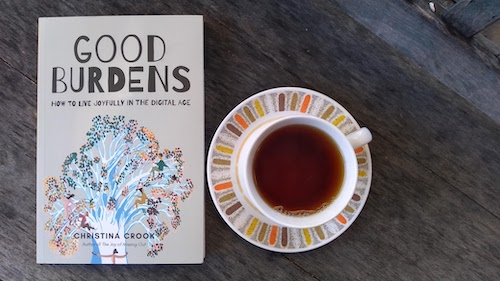
If my Blog School course had a textbook, Christina Crook’s Good Burdens would be it, a heartful and inspiring book about living a mindful and joyful digital life. After blogging for more than twenty years (and using my social media platforms as an extension of my blogging space), I know that the tools of the internet are capable of making our lives richer and deepening social connections, but that involves considered and deliberate practice, a willingness to go against the grain and serve ourselves (and each other) instead of an algorithm. And the payoff? A meaningful online life whose riches spill over into the real world in the form of friendships, inspiration, and creative work.
What is a Good Burden? Our good burdens are the work we do to that add meaning to our lives—partaking in a community project, putting dinner on the table where family will gather, sending a card or a letter to a friend. In a world where technology promises endless ease and convenience, it’s too simple to forget how much these kinds of gestures matter, both to our communities and to ourselves.
And in Good Burdens, Crook shows that the notion of good burdens can bring light and meaning to our digital experiences, and also to the rest of our lives. She urges her readers to pay attention to the world around them and to those things which deliver joy. What is joy and how do we find it? How do happy people use technology differently than other people? What makes a good life? How do you get there?
The book is a warm, inviting and engaging read, but also structured as a workbook with space for readers reflect and write down ideas, offering personalized approaches instead of one-sized-fits-all solutions, urging us to ask ourselves the right questions instead of promising answers. Good Burdens is about ideas that I think about a lot, but I still found it rich and inspiring—and really enjoyed the opportunity to talk with Crook on a recent episode of her JOMOcast all about the spaces where her ideas and my own blog thoughts overlap.
I first read this book as an advanced reader copy, and liked it so much I pre-ordered a finished copy, and then the publisher sent me a finished copy, so now I have two! If you would like the chance to win a copy of Good Burdens, make sure you’re signed up for one of my newsletters (sign up for the Pickle Me This Digest or the Blog School Newsletter) for a chance to win my spare copy. If you’re on my mailing list already, watch your inboxes—coming Friday!
And if you just can’t wait, you can go to your local bookstore and pick up Good Burdens today.
October 31, 2021
Hauntings: Books That Won’t Leave Me Alone
I loved this book, which I thought was going to be a smart and funny novel about modern dating and the phenomenon of “ghosting,” which it was, but it was also so much richer and more meaningful than that as Alderton’s protagonist comes to understand the different kinds of ghosts that are haunting her experience—ghosts of a past romance, of her childhood, and also of her relationship with her parents, which is changing and becoming more complicated as her father’s dementia progresses.
*
Reading the latest Laura Lippman is a summer holiday tradition for me and my husband. We love her, and her latest, a literary homage to Stephen King’s Misery, is a marvelous mindfuck. Lippman moves from crime fiction to psychogical thriller in this novel about an author who becomes confined to his bed and then proceeds to be haunted/hunted by a character from one of his novels. We loved it, and the meta elements of it all were delicious.
*
The Other Black Girl, by Zakiya Dalila Harris
This one checked a lot of boxes for me—set in the publishing industry, biting social commentary, and twisty and weirder than you’d think, billed as “Get Out meets The Stepford Wives.” Naturally, Nella is pleased when the new hire at her office means she’ll no longer be the only Black girl at her publishing company, but her comradeship with Hazel turns out to have an edge. The novel is a statement on racism and feminism, the notion of how much progress is enough, and a culture of scarcity that means supporting others could mean hindering one’s own chances of success. But it’s also more than that, totally bonkers, involving an underground movement, and a fight back after decades of oppression.
*
Malibu Rising, by Taylor Jenkins Reid
Everyone keeps telling met that the The Seven Husbands of Evelyn Hugo is her best, but I haven’t read it yet. I did read Daisy Jones and the Six and liked it well enough, but I LOVED Malibu Rising, a holiday dream of a novel that I read in a single day and then forced until my husband who liked it as well as I did. Complicated family dynamics, Americana, California, and the sea. The novel had some furious momentum and I found it unputdownable. I can’t think of any literary ghosts in this one, but characters are indeed haunted—by lost loves, and the people they used to be.
*
A Thousand Ships, by Natalie Haynes
We read The Odyssey earlier this year, and I ordered this book afterwards, inspired by that book and also events in The Iliad, though I confess that I wasn’t chomping at the bit to read it, figuring it would be difficult. Those Greeks, you know? But I loved it. Read it right after Malibu Rising and just as quickly while we were on holiday this August, and then my husband read it, and then our daughter did, and it brought these characters to life in the most vivid, devastating way, because this is a novel about death and loss and destruction after all. There is nothing heroic in these wars, which tell the story of how their experienced by many different women. I can’t wait to read The Iliad now
October 20, 2021
The Most Precious Substance on Earth, by Shashi Bhat
In 2018, when I had the great honour (and pleasure!) of being one of three jurors for the Journey Prize, one of the standout parts of that experience was encountering Shashi Bhat’s writing for the very first time. Although I didn’t know the writing belonged to Bhat herself—the stories were submitted anonymously. All I knew was that “Mute,” which would go on to win the prize, was utterly distinct in terms of its narrative voice, and its clarity, and its point of view. So smart, and wise, and funny, and sad, and I don’t know that I’d ever read anything else quite like it.
And now with The Most Precious Substance on Earth, Bhat’s debut, there’s an entire book of this, and I just loved it, and was just as struck by Bhat’s storytelling as I was the first time I encountered it—her award-winning story “Mute” is actually included in the novel. Which indeed does function as a novel—just as it also stands up an impressive collection of short fiction, as Steven W. Beattie argues compellingly in a recent review—because the entire book is so satisfying and rewarding as a whole.
At first, the appeal was nostalgic, familiar, and I texted my best friends to instruct them to get their hands on this book immediately, because Bhat’s tales of late 1990s high school were just so absolutely transporting to this particular reader (me!) who spent Grades 9 and 10 eating lunch on the dusty wooden floors in the alcove outside the science office of a high school at no longer exists. But it wasn’t only the nostalgia—the stories were so evocative because of the specificity of Shashi Bhat’s eye, which is to the eye/I of her protagonist/narrator Nina, who must seem detached from the outside, and we can understand that she sees everything, even the details she’s still too young and naive to process, such as her inappropriate relationship with English teacher.
It’s all so funny, deadpan, tortured and awful, Nina’s best friend Amy, and her boyfriend, and the way she peels the floors. The absurdity of ordinary experience, which is especially the case in high school, and the novel takes us from Grade 9 to a fateful band trip, and Nina’s coming of age, and the way in which she seems to weigh everything evenly, no judgment. The weight of what her did to her, or what happened to Amy, or what it’s meant to to so often be the only person of colour in spaces that were overwhelmingly white—none of this becomes apparent until much later, and it might be easy for a reader to suppose these experiences don’t actually matter much at all.
But all this is also not to say that Nina is a nonentity, just a simple observer—it’s the specificity of these characters and their experiences that so exalts Bhat’s writing. The baked ziti, and the tomato plants, and that Nina joins Toastmasters, and her parents’ eccentricities—there is nothing general about it, and these are the details that bring these stories to life. They’re also often very funny, Bhat’s prose just as assured and confident. She’s an extraordinary writer, and this is an extraordinarily good book.
